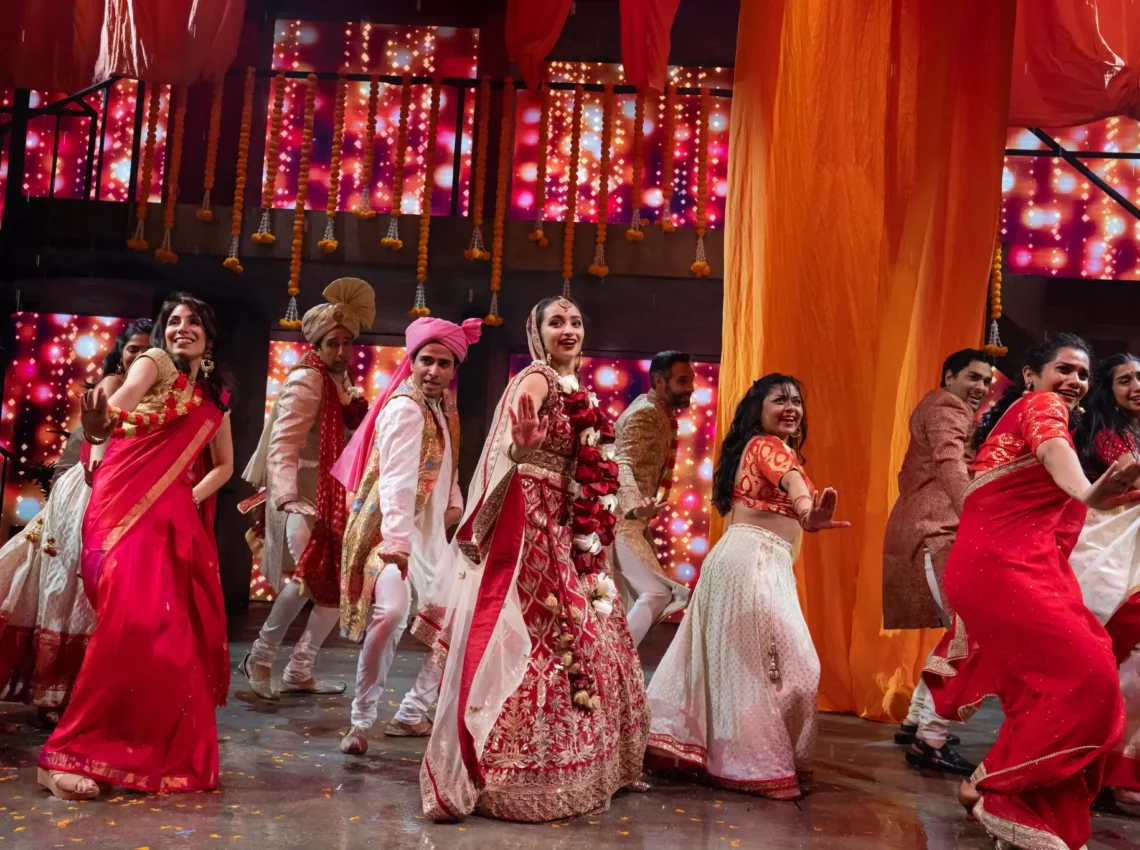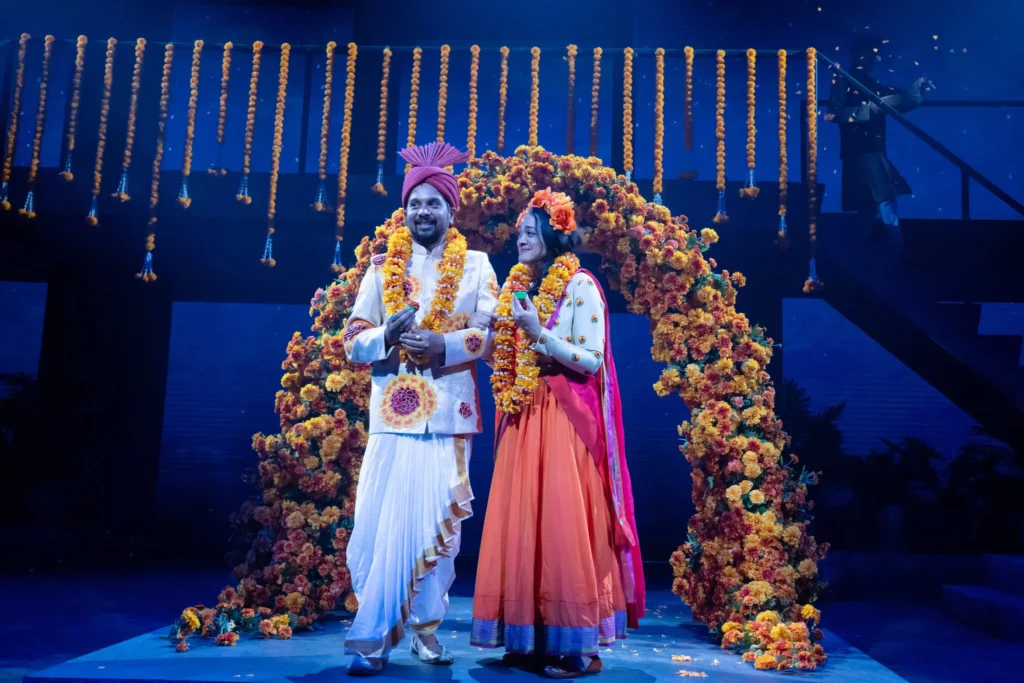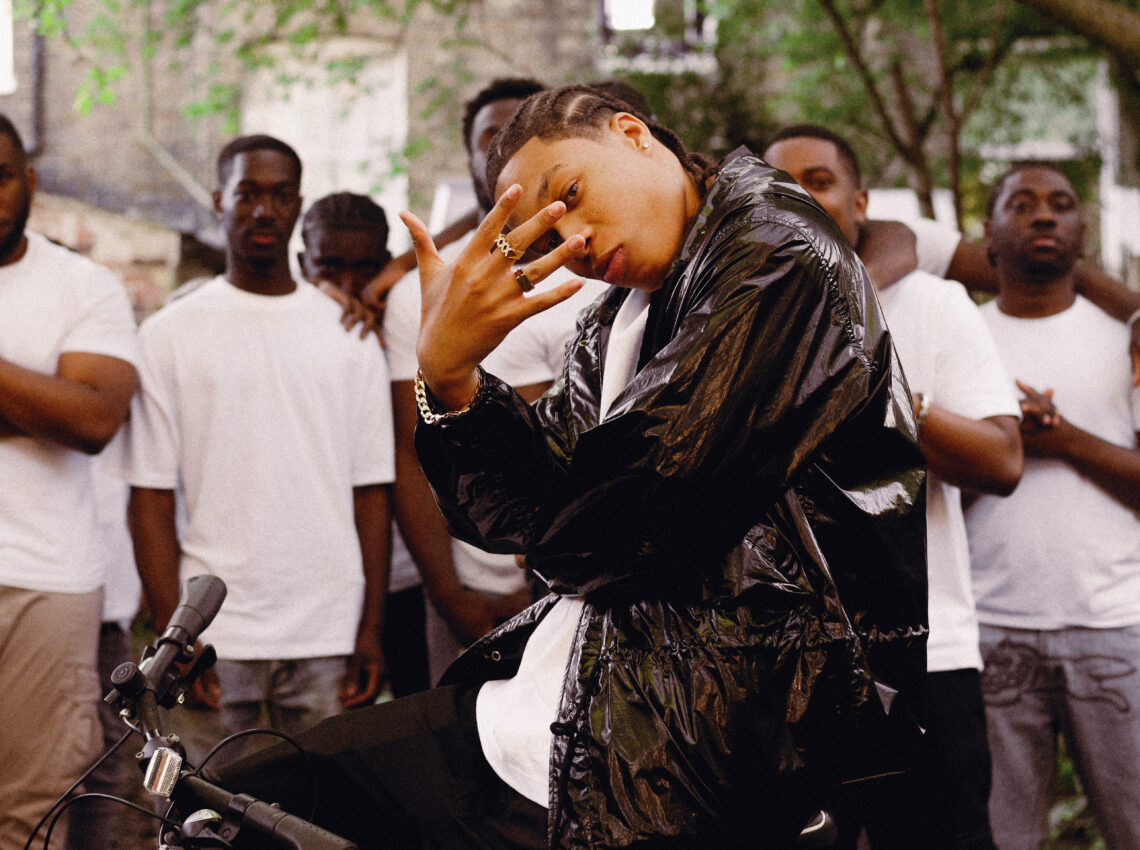Monsoon Wedding the Musical – a hit or miss for this generation?

Showing this month at St Ann’s Warehouse in Brooklyn, Mair Nair adapts Monsoon Wedding, the 2001 beloved Bollywood movie about a cross-cultural wedding, for an off-broadway audience. Arjun Bhasin designs costumes, Vishal Bhardawaj is on the score, and David Bengali designs projections to engulf audiences with Indian color and cheer.
But, along the way, Monsoon Wedding pales. The musical tries to be contemporary by featuring a heavily Gen Z cast, explicit references to this generation, and pop culture favorites. However, it fails to attach to young ways of seeing the world— because it tries too hard to.
It seemed like the script was contrived with gaudy scenes and straightforward writing to engage our generation’s assumingly short attention span. Rather than letting audiences arrive at their conclusions and cherry-pick which emotions they resonate with most from the plethora the movie tackled, the musical spoon-fed everything to viewers.
Right from the get-go, we have painted a two-dimensional portrait of Aditi from her “South Delhi Girl” introductory song telling us she is a snobby daddy’s girl. We’re told Hemant is an American-born, confused Desi who is not American or Indian enough. Alice and Dubey’s beautiful union in the movie is turned into a boisterous song with colorful and out-of-place costumes, presumably for comedic effect.

The Musical also struggles to capture the ethos of the young South Asian diaspora. Unlike in 2001, when Monsoon Wedding the movie was released, fewer children of the South Asian diaspora today grapple with the basic tenets of their bicultural identity. So, the song characterizing Hemant as an American-Born, confused Desi is tired and repetitive. We all acknowledge that we don’t belong to India or the West, but many of us find strength in this duality. The new age diaspora is creating our culture as hyphenated South Asians and tropes of representation without nuance lackluster.
Our evolution of identity was utterly thanks to trailblazers like Nair, who gave us faces and stories in the mainstream that we could relate to, so it’s time that she brings in more nuance, too. While the music and attention to detail were stunning, seeing the musical compound on the timelessness and multidimensional storytelling the movie so brilliantly executed would have been a treat.
Discover more from GUAP’s Arts and Culture section here.




![ZINO VINCI’S ‘FILTHY & DISGUSTING’EP BRINGS YOU TO THE CORE OF THE ARTIST [@ZinoVinci]](https://guap.co/wp-content/uploads/2023/10/Zino-4.jpg)




![Remel London’s [@Remel_London] “Mainstream” is a must attend for upcoming presenters!](https://guap.co/wp-content/uploads/2017/02/REMEL-LONDON-FLYER-FINAL-YELLOW-COMPLETE-1.png)